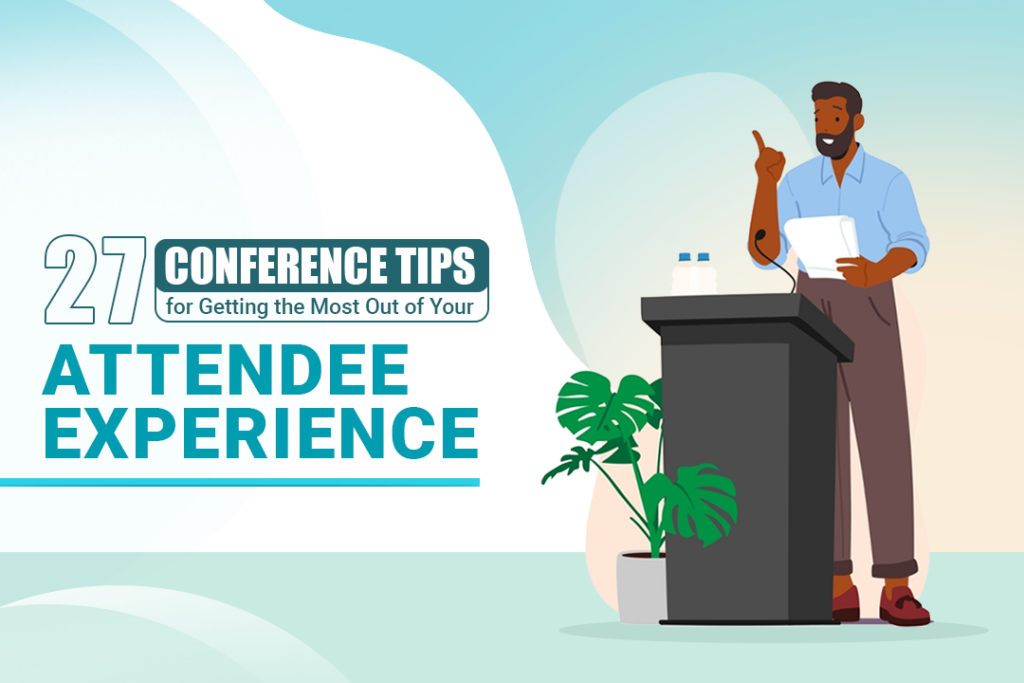
Attending conferences is a valuable experience as it allows you to network, gain knowledge, and stay up-to-date with industry trends. However, ensuring you make the most of your conference experience entails careful planning and execution. So, we at Eventible provide you with 27 practical conference tips to help you get the most out of your attendee experience, whether you’re a first-time conference-goer or a seasonal participant.
27 Conference Tips That Will Help You Get The Most of Your Experience
Here are 27 conference tips to help you have a cherished and successful experience.
1. Plan Ahead
Planning is crucial to make the most of a conference experience. Research the conference agenda, prioritize sessions aligned with your interests and goals, and identify unique insights and networking opportunities.

Create a personalized schedule using a digital calendar or planner, considering session duration, breaks, and energy levels. It’s always best to be flexible in exploring unexpected opportunities and sharing your plan for coordination. Aim for a balance between sessions aligned with your goals and those that offer new perspectives. Optimize your time and connections at the conference to allow for spontaneity and maximize your professional growth.
2. Set Goals
If you want to make the most of your conference experience, you must set clear objectives and identify specific people or topics of interest. Define what you hope to achieve and the knowledge or skills you want to gain from the conference. Prioritize goals that align with your professional development.
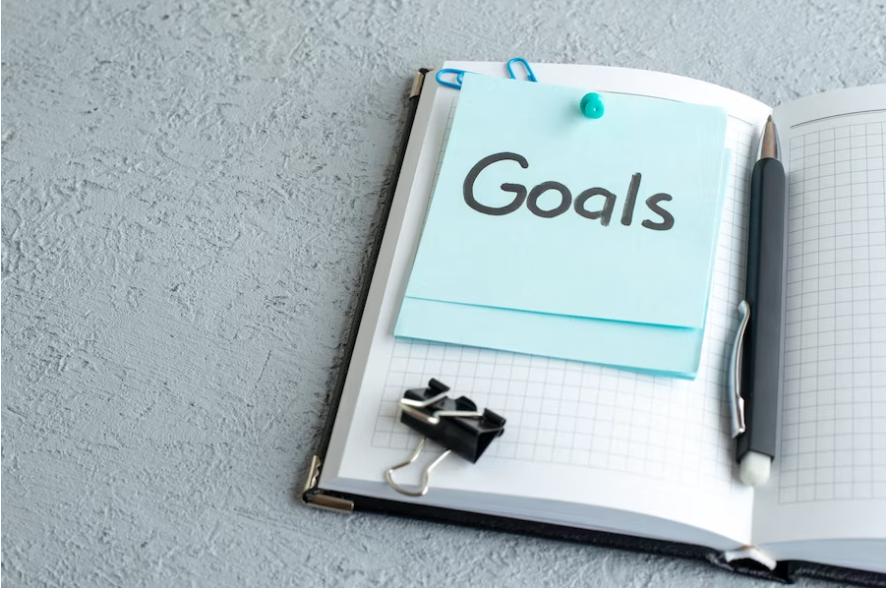
Pic Courtesy: Freepik
Research the list of speakers and experts attending the conference and identify individuals you want to connect with or learn from. Make them a priority by attending their sessions or networking events.
Additionally, identify specific topics or areas of interest and prioritize attending sessions that cover them. These strategies will help you stay focused, maximize your learning, and expand your professional network during the conference.
3. Network Strategically
Networking strategically is crucial for maximizing the benefits of a conference. Our article, “17 Benefits of Networking That’ll Help You Make New Connections & Elevate Your Career”, will help you understand why networking is essential.
Before attending an event or conference, it always helps to connect with fellow attendees through social media platforms, establishing connections, and initiating conversations.

During networking breaks, engage with speakers, exhibitors, and participants, showing genuine interest in their work and actively listening. This will go a long way toward helping you build connections at the conference. You can also use this opportunity to exchange contact information for future communication.
Strategic networking expands your professional network, fosters connections, and opens doors for collaboration and career opportunities. Approach networking authentically and initiate conversations proactively to make the most of the conference experience. To learn more about effective networking, read our article, “How To Network At A Conference: 13 Ways To Build Solid Business Connections.”
4. Bring Business Cards
Bringing business cards to a conference is an essential networking practice that facilitates the exchange of contact information and establishes a professional impression.
Handing out a business card creates a professional image and demonstrates preparedness. It shows that you take your networking efforts seriously and are ready to establish meaningful connections. A well-designed and high-quality business card adds a touch of professionalism and leaves a lasting impression on the recipients.
Pic Courtesy: Freepik
A thoughtfully designed business card can reflect your brand or the company you represent. It lets you showcase your unique style, logo, and critical information, making you stand out.
To maximize the impact of business cards at conferences, ensure they are up-to-date and easily accessible in a designated holder or pocket. Doing this will enhance your networking effectiveness and leave a professional and memorable impression on others.
Nowadays, people opt for digital business cards over physical business cards. They take up less space than their paper counterparts, making them easier to handle and carry around. To learn more about them, read our article, “A Complete Guide To Know What Is A Digital Business Card.”
5. Dress Professionally
Your physical appearance is usually the first thing people will notice at a conference. Dressing professionally reflects your professionalism and helps you leave a positive impression on others.
Wearing professional attire also showcases your seriousness toward the conference. It will help create a positive first impression and help you in your networking endeavors. Dressing professionally will also help you come across as credible, trustworthy, and competent.

Pic Courtesy: Freepik
Dressing professionally can boost your confidence levels. When you feel good about your appearance, you exude more confidence, which can positively impact your interactions and overall conference experience.
However, it’s important to remember that dressing professionally doesn’t necessarily mean you have to wear formal business attire unless it is mentioned as a conference dress code. While deciding what to wear at a conference, keep in mind the nature of the conference, industry norms, and cultural expectations. To know more about this, read our article, “A Comprehensive Guide On What To Wear To A Conference For Men & Women.”
6. Take Notes
A conference typically consists of several essential sessions that present a wealth of information that can leave attendees with significant insights and takeaways. That is why you must note critical points and ideas during these sessions to help you remember and apply the information later.
Listening and jotting down points can help you enhance your understanding and retention of the session. Doing this ensures you get the most out of each session, helping you retain the information until long after the session.
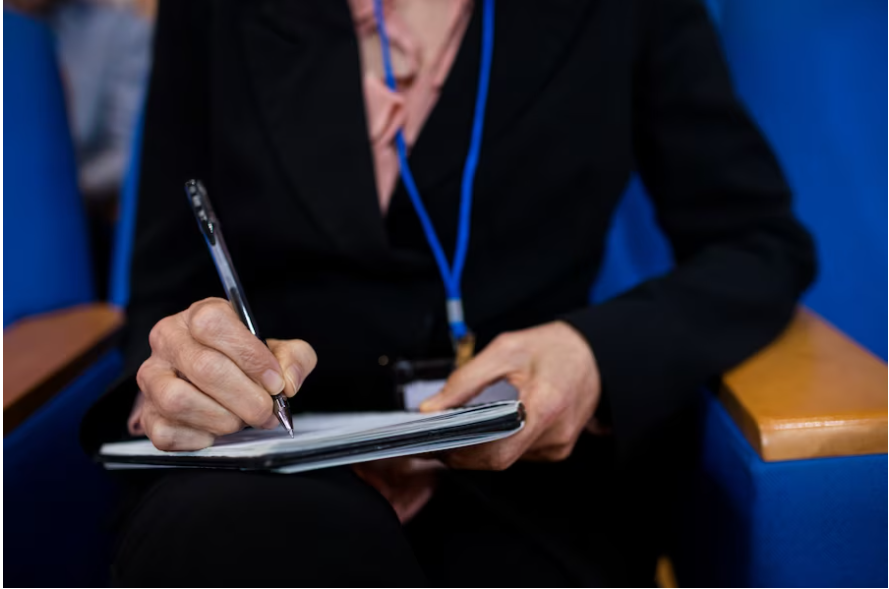
Taking notes during a conference also helps you create a customized resource that displays only relevant and vital information. You can structure your notes by combining relatable concepts, highlighting significant points, and drawing connections between sessions. This process is helpful because it helps you integrate new knowledge with your existing understanding, facilitating a deeper comprehension of the subject matter.
Note-taking at conferences also helps facilitate networking, as you can share the notes with colleagues and peers who couldn’t attend the conference. This will strengthen your professional network and establish you as a valuable resource in your field.
However, while taking notes at a conference, remember to be selective in what you note down, focusing only on critical points, actionable information, and personal reflections rather than transcribing every word. Doing this will help you balance capturing important information for later use and actively engaging in the conference.
7. Ask Questions
Conference organizers usually dedicate some time to Q&A sessions after a presentation, session, or panel discussion. This allows attendees to actively participate in asking thoughtful questions, which helps them clarify their concepts, improve their understanding, and clear any potential confusion. Q&A sessions also allow attendees to interact with speakers and panelists.

Q&A sessions allow attendees to address particular concerns, challenges, or interests related to the conference theme or subject matter. During these sessions, attendees can establish long-lasting connections, initiate conversations, and build relationships with industry experts, thought leaders, and panelists.
However, to make the most of a Q&A session, it is always advisable to prepare the questions by identifying areas of interest. Pay attention to the presentations or discussions preceding the Q&A session to ensure your questions are relevant. Ensure that your questions are concise and focused and do not waste much of your speaker’s or panelists’ time.
8. Utilize Technology
Embracing technology can help attendees make the most of their conference experience. Technology exists only to improve the event/conference experience for all major stakeholders, whether the event organizer, marketer, speaker, sponsor, or attendees. Technology can encompass many things, from conference apps, note-taking apps, and cloud platforms to engaging in live tweeting and other social media discussions.
One of the best ways to do so is to download conference apps, if available. These apps include conference schedules, session details, and other networking opportunities. When attendees download the apps, they can access the event schedule, session details, speaker bios, and venue-related information and features.
The app can also facilitate networking by allowing attendees to connect with fellow participants, schedule meetings, and more. To learn more about the best conference apps, read our article, 7 Best Conference Apps: The Must-Have Tools for Event Attendees.

Pic Courtesy: Freepik
As mentioned above, attendees can leverage digital tools to streamline networking and contact management instead of relying solely on physical business cards. Digital business cards are a hassle-free digital networking and contact management tool. Attendees can use note-taking apps or cloud-based platforms to capture and organize their notes digitally.
These apps’ most important features include search functionality, tagging, and syncing across multiple devices, which makes it easier to find and review messages later. Additionally, some apps allow users to have audio recordings, live photos, and the like.
Embracing technology can help attendees improve their conference experience, stay organized, connect with others, and effectively manage the vast amount of information presented. However, it is vital to strike a balance and use technology judiciously, ensuring that it enhances rather than distracts from the overall conference objectives and interactions.
9. Hydrate and Snack
Conferences can be physically and mentally exhausting, with hour-long sessions, networking, and excessive information absorption. That is why it becomes imperative for the attendees to stay hydrated and carry light snacks to maintain their energy levels.
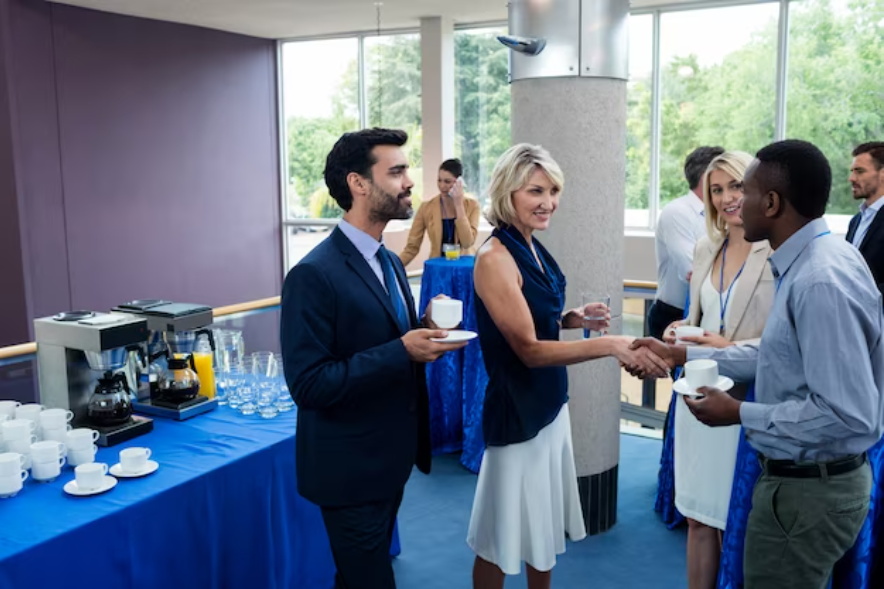
While conferences will have snacks and beverages available during breaks, attendees should ensure they have easy access to water. They should carry refillable water bottles that are easy to carry and consume during sessions. It is best to opt for nutrient-dense snacks that provide sustained energy, such as fresh fruits, trail mix, or protein bars, which can help attendees maintain optimal energy levels throughout the day.
10. Engage in Small Talk
Small talk isn’t a biological trait or something we are intuitively aware of. It is a skill that has to be learned and developed over time. While some people can navigate social situations better than others, most of us must build conversation skills to make the most of a conference or event.
To expand your network at a conference, initiate conversations with fellow attendees during breaks or meal times. One of the most effective ways to make small talk is to show genuine interest in what the other person is saying. If you see this as an opportunity to get to know the other person and learn from them, it will be a fruitful networking experience. Your efforts at small talk could lead you to form a long-lasting connection and, perhaps, a business relationship.

Using open-ended questions like “Where are you from?” or “What do you do?”, goes a long way in starting a meaningful conversation. No one likes to hear people talk about themselves. Showing genuine interest and curiosity in knowing the other person and getting in-depth responses to your questions can go a long way in having a productive conversation.
An essential part of small talk is being an active listener. Active listening is a communication skill that involves paying close attention to the words that the speaker, or, in this case, the person you are talking to, is saying. Not only will the other person feel good about how engaged you are in the conversation and reciprocate, but you’ll also find that it’s effortless to ask relevant follow-up questions.
When conversing with other people, consciously maintain eye contact and periodically nod your head to show that you’re listening to the conversation.
11. Attend Social Events
Conferences usually have breakout sessions and other social events designed for attendees to network and form long-lasting connections. Social events are informal settings where attendees can get to know each other, exchange ideas, share insights, and learn from each other’s experiences.

Attendees must capitalize on these opportunities to get to know peers from the industry and make the most of the conference. When you participate in social events, you automatically come to know different people. Meeting others exposes people to new ideas they can use in their businesses.
However, while attending social events can be beneficial, it’s essential to strike a balance and not let them overshadow the conference’s primary purpose. Prioritize the conference’s key sessions, workshops, and presentations related to your professional interests. Use social events as a complement to make the most of your conference experience.
12. Be Open to New Perspectives
Conferences often draw attendees from diverse backgrounds, expertise, industries, and experiences. Engaging in conversations with people outside your immediate professional circles can expose you to fresh perspectives, innovative ideas, and emerging trends. Doing this will help you broaden your knowledge and help you get a new perspective on your work.
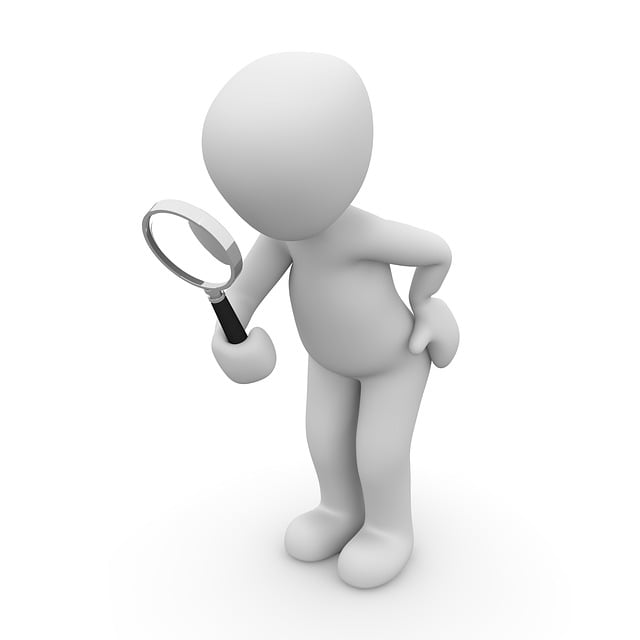
Pic Courtesy: Freepik
Embracing new perspectives enables you to challenge your thoughts, ideas, biases, and preconceived notions. It also pushes you to step out of your comfort zone and take chances, which contributes to your personal and professional growth and development. Being open to new perspectives also helps you stay ahead of the curve, anticipate potential changes, and adapt strategies accordingly.
However, embracing new perspectives doesn’t mean abandoning your viewpoints or beliefs. It simply means being open to listening, learning, and considering alternative views.
13. Take Breaks
Conferences can be long, physically demanding, and mentally demanding. Taking occasional breaks can help participants rest and recharge, ensuring they maintain their focus and energy and do not burn out.
Research has shown that taking breaks during intense learning activities improves information processing and retention. Breaks allow the brain to consolidate all the information and help it remember it better.
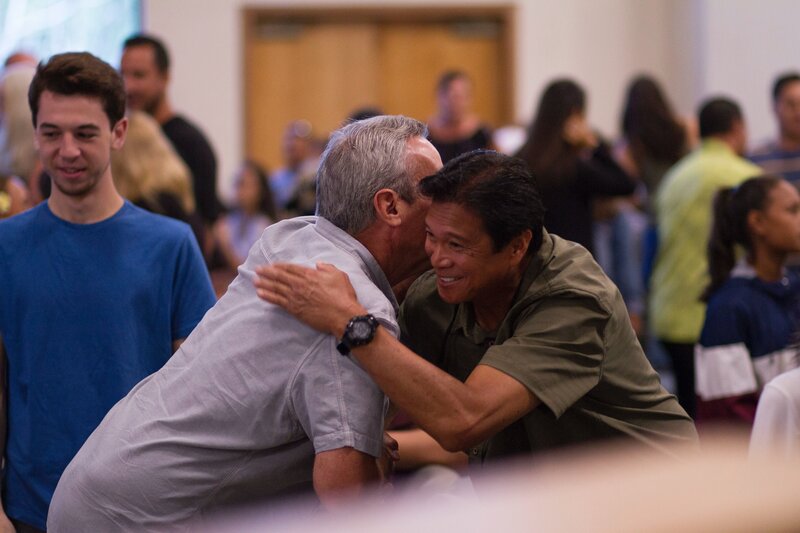
Pic Courtesy: Freepik
As stated above, breaks also provide attendees with networking opportunities. Attendees can use their breaks to meet peers from other companies or industries to exchange their cards and get to know them better in an informal setting. Meeting over coffee during break time can fuel more meaningful conversations, leading to potential work relationships.
Taking breaks from sitting at a conference for too long can also help combat the adverse effects of prolonged sitting. Participants can use the break time to stretch, walk around, or engage in light physical activity to alleviate stiffness, boost circulation, burn calories, and increase alertness.
Occasional breaks can also allow participants to explore the conference venue, stumble upon exciting exhibits, and engage in impromptu conversations.
However, it’s vital to plan breaks strategically, ensuring that the break time doesn’t coincide with an important session.
14. Utilize Social Media
Social media platforms like Facebook, Twitter, Linkedin, and Instagram provide a digital space where attendees can connect, share ideas, and stay in touch. Attendees can also share key takeaways or insights from the conference using the designated hashtags on their social media platforms.
These platforms also allow organizers and attendees to share real-time updates, like session changes, speaker announcements, and event highlights. Following relevant hashtags or conference accounts can help you stay informed and make the most of your conference experience.
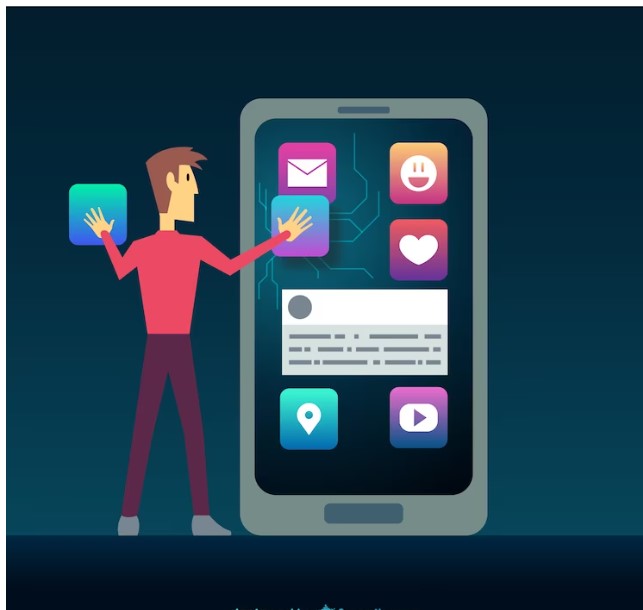
You can also share your thoughts, insights, and key takeaways from conference sessions. Posting regular ideas, insights, talks, and presentations can all contribute to the conference conversation and help attendees engage with fellow participants with similar interests.
Social media can also allow virtual attendees to actively participate by joining relevant discussions, asking questions, and sharing their perspectives. Social media can also help attendees amplify their conference experience beyond their physical reach.
When utilizing social media during a conference, it’s vital to be mindful of professional etiquette, respect the speaker and attendee’s privacy, and adhere to any conference or social media guidelines. Also, remember to balance actively engaging online and fully experiencing the conference in person. Social media should complement your conference experience, not detract from it.
15. Explore the Venue
Exploring the venue can help attendees familiarize themselves with the layout, facilities, and amenities. This is especially important if the event is longer than a day and takes place at a huge venue.
Exploring the venue before the conference allows you to plan your route and allocate sufficient time to move between different sessions. This helps you optimize your time management and ensure you attend all the sessions or events of particular interest.

Many conferences feature exhibitions where companies, organizations, or research groups showcase their products, services, or projects. Touring the venue thoroughly allows you to engage with exhibitors, learn about their offerings, ask questions, and explore collaborations or business opportunities. Interacting with exhibitors can broaden your understanding of industry trends, technologies, and potential solutions relevant to your field.
Remember to be mindful of any restricted or private areas within the venue and respect any guidelines or instructions provided by the conference organizers. Exploring the venue should be considerate and respectful, ensuring that it enhances your conference experience while being mindful of others attending the event.
16. Volunteer or Participate
Volunteering or participating actively in a conference allows you to engage more deeply with the content, activities, and overall community. It goes beyond passive attendance and will enable you to contribute, actively participate in discussions, and make a meaningful impact on the conference experience.
It entails taking on responsibilities such as moderating panels, leading discussions, or assisting with logistical tasks. These roles provide valuable opportunities to develop and refine skills such as public speaking, leadership, event management, and teamwork. Actively participating can help you gain new skills and enhance your professional development.

Volunteering and actively participating can also increase your visibility among conference attendees, organizers, and speakers. Your involvement and contributions can make you more recognizable within the conference community, opening doors to networking opportunities and potential collaborations. It can also help you establish yourself as an engaged and proactive professional in your field.
Actively engaging in conference activities also allows you to delve deeper into the subject matter and gain a more comprehensive understanding. That said, be sure to review the opportunities available, align them with your interests and skills, and consider any time commitments or responsibilities involved. It’s important to balance active involvement and ensure you still have time to attend sessions, network, and make the most of the conference experience.
17. Attend the Keynote Speeches
Attending keynote speeches at conferences is important because they offer insights from industry leaders, provide a big-picture view of the industry, share success stories and lessons learned, facilitate networking with like-minded professionals, and provide opportunities to align strategies with industry trends.
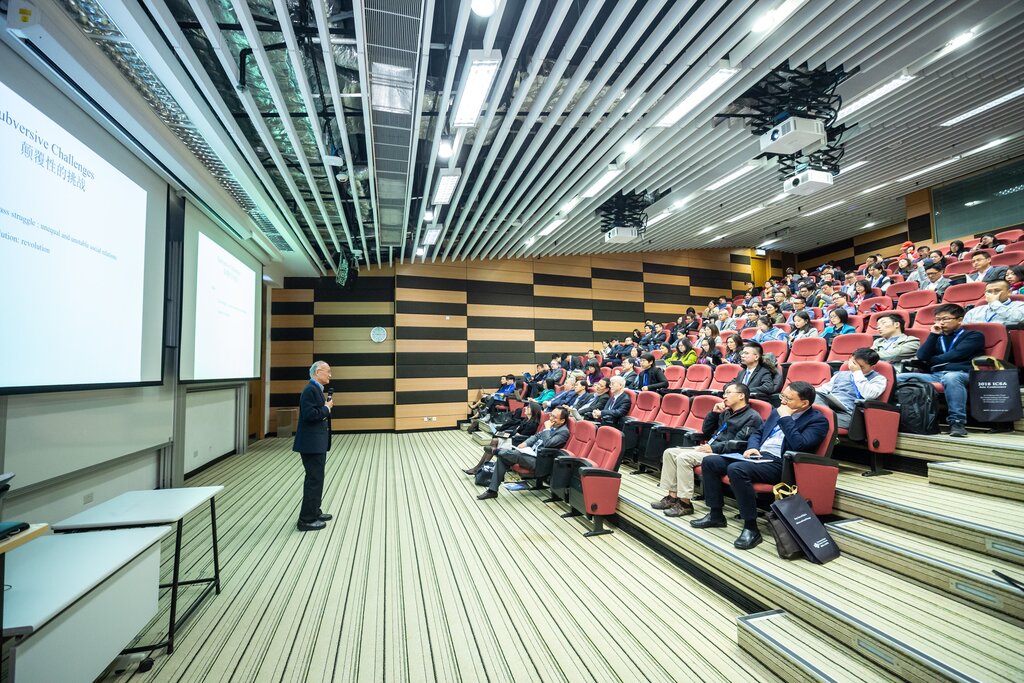
When attending keynote speeches, it’s essential to arrive early to secure a seat, actively listen, and take notes to capture key points and ideas. Additionally, consider participating in any Q&A sessions or networking opportunities associated with the keynote speech to further engage with the speaker and fellow attendees.
18. Stay Flexible
Conferences can be dynamic and subject to unforeseen factors like schedule changes and session or speaker issues. That’s why it always helps to be open to adjusting your schedule or attending impromptu sessions if something unexpected interests you.

Staying flexible can help attendees adapt to unforeseen adjustments and make necessary adjustments to their plans. It ensures they can make the most of the conference experience without being thrown off track by unforeseen circumstances.
Being open and adaptable to new experiences helps attendees make the most of the conference’s opportunities, embrace diverse content, enhance networking experiences, and cater to individual learning styles. This promotes a more enriching, dynamic, and tailored experience for each attendee.
19. Evaluate and Reflect
After each session at the conference, reflecting on what you learned and considering how to apply it in your work or career is a valuable practice. Reflection helps solidify your understanding of the content and ensures you retain the key takeaways.

Contemplating how the session’s content relates to your work or career can help you identify connections, patterns, or opportunities that may not have been immediately apparent.
Reflection also fosters personal and professional growth. It encourages critical thinking, self-awareness, and a deeper understanding of one’s strengths, weaknesses, and areas for growth.
20. Join Online Discussions
To continue learning and networking, participate in online forums or discussion boards related to the conference. These forums or discussion boards provide an ongoing platform for knowledge exchange and learning. Participants can share insights, ask questions, and discuss the conference topics.
These online platforms serve as virtual communities where attendees, speakers, and industry professionals can connect and network. Engaging in discussions, commenting on posts, and initiating conversations can help build relationships with like-minded individuals, expand your professional network, and establish connections that may lead to future collaborations or career opportunities.
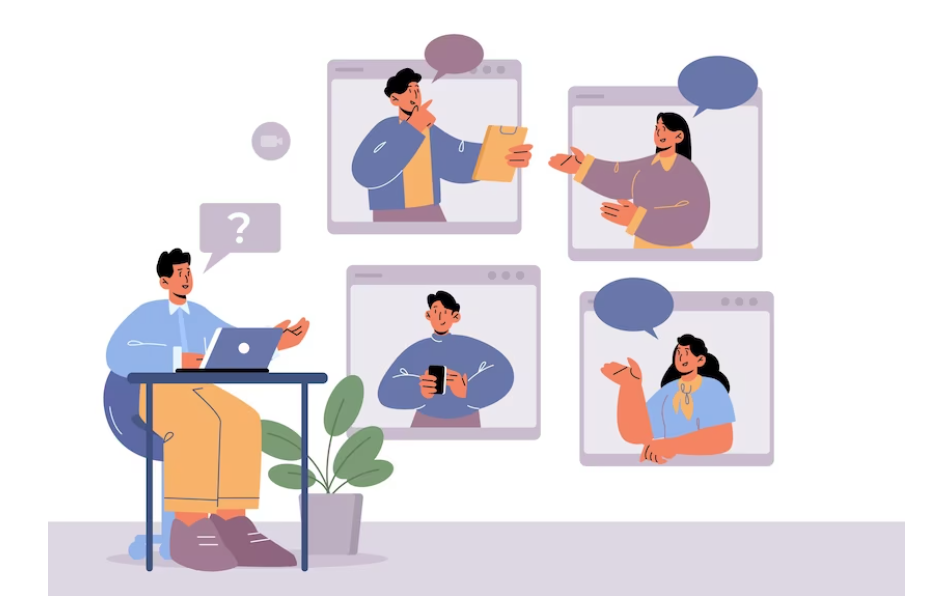
Online forums often attract experts or thought leaders who actively participate and share their insights. Joining these discussions can help participants gain direct access to their expertise, allow them to ask questions, and receive valuable guidance. Engaging with these experts can deepen your knowledge, help you stay updated on industry trends, and provide valuable mentorship or advice. Online forums can also provide a platform for sharing resources, such as articles, research papers, or relevant industry news.
However, remember to maintain a respectful and constructive tone when interacting with other forum members. Contribute thoughtfully, offer insights, ask meaningful questions, and engage in active dialogue. Being an active and valuable participant can maximize the benefits of these online communities and help the attendees in their learning and networking journey long after the conference has ended.
21. Don’t Overcommit
Apart from networking, people attend conferences to learn a new skill or update an existing one. However, while deciding which sessions to attend and let go of, it is advisable to avoid over-committing to attending all of them, as that could lead to physical and mental exhaustion and burnout.

Pic Courtesy: Freepik
Instead of attending every single session of the conference, it would be best to decide the quality of the sessions you are participating in. Carefully select sessions that align with your interests, goals, and expertise so that you can ensure a higher level of engagement and gain more meaningful insights from the respective presentations.
Attending back-to-back sessions renders it difficult for attendees to retain and process all the information grasped. Attending only a handful of sessions with breaks in the middle will allow you to enjoy the experience as an attendee thoroughly.
It will also give attendees time to organize their thoughts and help them integrate the information into their understanding. It’s thus essential to balance attending valuable sessions and allowing yourself enough time to rest, reflect, and network.
22. Be Respectful
Conferences are professional events where individuals from various fields come together to exchange knowledge, network, and collaborate. Respecting one another is also a sign of professionalism and contributes to a positive and productive conference environment.
Attending conferences can contribute to your professional growth and development. Respectful interactions can lead to mentorship opportunities, recommendations, or invitations to future events, all of which can enhance your career prospects.

Your behavior at conferences reflects on your personal and professional reputation. Being respectful benefits your immediate interactions and contributes to your overall reputation within your field. People tend to remember courteous, professional, and respectful individuals, which can benefit your career advancement.
Respectful behavior fosters a sense of community and support among conference attendees, creating a safe space for diverse perspectives and encouraging constructive discussions.
Conferences offer excellent opportunities to network with like-minded individuals, potential collaborators, and industry experts. Being respectful can leave a positive impression on others, leading to meaningful connections and future collaborations.
23. Embrace Serendipity
Conferences bring together diverse individuals from various backgrounds and expertise. Embracing serendipity means being open to chance encounters with people you may not have planned to meet. These unplanned interactions can lead to new insights, collaborations, or even friendships you wouldn’t have otherwise.

Serendipity can play a crucial role in networking opportunities. While you may have planned to connect with specific individuals, chance encounters with other attendees or speakers can be equally valuable. Embracing serendipity may help you to meet someone who can provide unique insights, offer new collaboration opportunities, or even become a mentor.
While having a plan and specific goals for attending a conference is essential, embracing serendipity adds an element of discovery and adventure. Remaining open to unexpected opportunities will likely increase the chances of gaining valuable insights, making meaningful connections, and experiencing transformative moments that can significantly impact your professional.
24. Engage with Exhibitors
Exhibitors often represent organizations, companies, or institutions related to the conference theme or industry. Engaging with exhibitors allows you to network with professionals who may share similar interests or work in relevant fields. It can lead to potential collaborations, partnerships, or even job opportunities.
Exhibitors know their products and services and are often eager to share their expertise. Engaging with them provides an opportunity to seek advice, ask questions, and receive insights from industry experts. Whether discussing a specific challenge, exploring solutions, or seeking recommendations, exhibitors can provide valuable guidance and expertise.
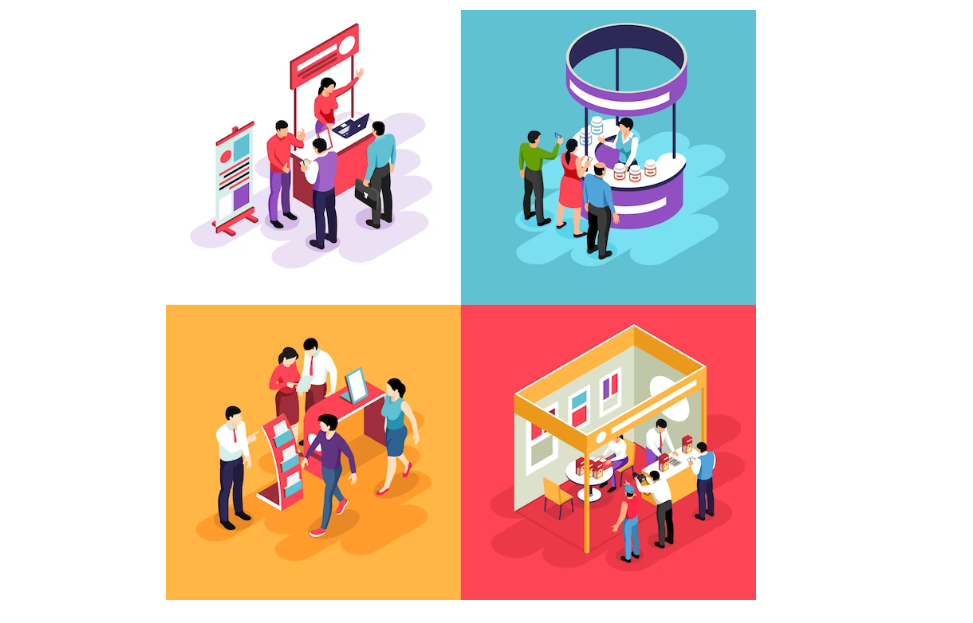
Engaging in meaningful conversations with exhibitors to learn about their products/services and potential collaborations also helps us get valuable insights.
Remember to approach exhibitors with genuine curiosity and interest. Respect their time and engage in meaningful conversations. Ask relevant questions, listen actively, and exchange contact information if appropriate. Engaging with exhibitors expands your professional network, exposes you to new opportunities, and helps you stay informed about the latest developments in your field.
25. Attend Post-Conference Events
If there are post-conference activities or gatherings, try to attend and continue building connections. Post-conference events, such as networking receptions or social gatherings, provide an informal setting for further networking.
These events often let attendees, speakers, and organizers relax and converse casually. They’re an opportunity to connect with individuals you may have yet to interact with during the conference proper and build stronger relationships with fellow professionals.

Additionally, these events may foster open dialogue, idea sharing, and brainstorming sessions that lead to new insights and perspectives. They are an opportunity to explore specific topics of interest in more detail.
Post-conference events sometimes include opportunities to interact with the conference speakers, presenters, or industry experts on a more personal level. This can be through panel discussions, Q&A sessions, or even one-on-one conversations. Engaging with these individuals in a more intimate setting allows you to seek further clarification, ask follow-up questions, or receive additional guidance.
26. Follow up
Connect with the people you met after the conference through email or LinkedIn to nurture your newly formed relationships. Following up allows you to solidify the connections you made during the conference. Reaching out to fellow attendees, speakers, or exhibitors will help demonstrate your interest and commitment to maintaining professional relationships. It helps convert initial acquaintances into long-term connections.

Following up presents an opportunity to continue networking beyond the conference. You can schedule follow-up meetings, phone calls, or virtual coffee chats with individuals you met during the event. These interactions can lead to further discussions, collaborations, or partnerships.
It also demonstrates your commitment to professional development. You value the knowledge and connections gained from the event and are eager to continue learning and growing in your field. This can positively impact your professional reputation and open doors for future opportunities.
Remember to personalize your follow-up messages and be specific about the conference discussions or interactions that stood out to you. You must also respect the time and availability of the individuals you’re contacting.
27. Share Your Experience
Share your conference experience and key takeaways with colleagues and your professional network to extend the benefits beyond the event. This will help you contribute to the collective knowledge of your professional community. You can share key takeaways, insights, and new ideas you gained from attending the conference. Doing this helps disseminate valuable information to colleagues, peers, and the broader industry.
It also provides an opportunity to connect with fellow professionals who attended the same event or share a shared interest in the conference topics. This sparks conversations, discussions, and the exchange of ideas, which can lead to new connections, collaborations, and future networking opportunities.
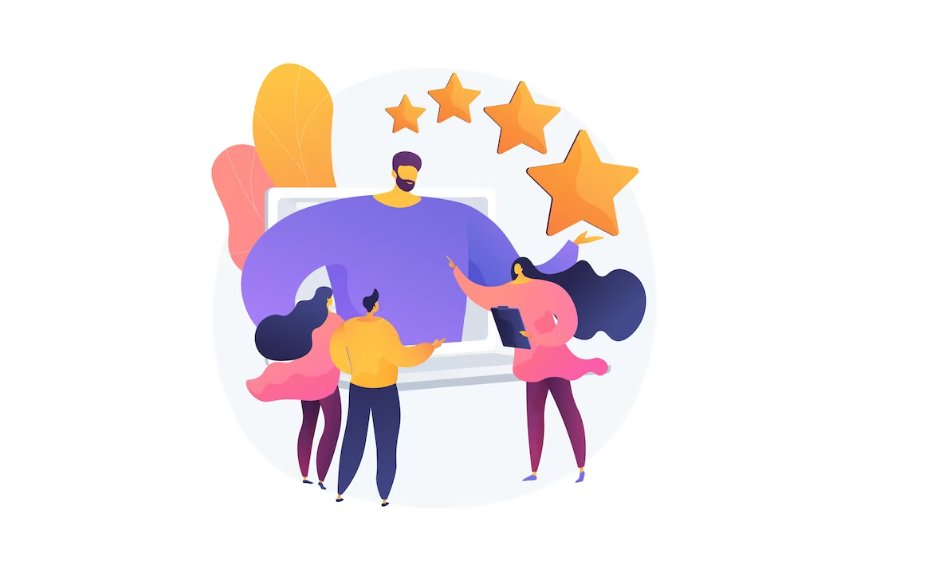
Additionally, sharing your conference experience provides an opportunity to reflect on what you learned and how it impacts your work or projects. Articulating your thoughts and insights can help you deepen your understanding of the conference content and its relevance to your professional goals. It also allows you to solidify and effectively apply your learnings in your work.
However, ensure you choose appropriate channels for sharing your conference experiences, such as professional networks, industry forums, social media, or even blog posts. Tailor your sharing to the audience and platform, highlighting the key insights and experiences most relevant and valuable to others.
Key Takeaway
Attending conferences can be a transformative experience, providing opportunities for learning, networking, and personal growth. These 27 tips will help you be well-prepared to make the most of your conference experience and come away with valuable insights, new connections, and inspiration to propel your professional journey forward. Remember to adapt these tips to suit your specific needs and objectives and enjoy the conference to its fullest potential.
If you’re a conference regular and look forward to learning and networking opportunities, visit Eventible for more information related to Events. Eventible is a third-party review platform for B2B events.
Our platform makes gathering insights through event surveys and voice polls effortless. We have curated a reliable set of event survey questions based on years of experience conducting post-event surveys. These surveys capture stakeholders’ expectations, enabling organizers to understand and meet their needs effectively. Depending on our site’s reviews and ratings, you can decide the best events/conferences to attend.
If you wish to read more conference-related blogs, read the articles below:
i) Your Ultimate Guide to Successfully Attending a Conference for the First Time
ii) 7 Tips To Write The Perfect Statement of Purpose for Attending a Conference
iii) Conference Feedback: Why Is It Important & How To Collect It?
iv) Wondering What To Bring To A Conference? Here are 17 Must-Have Items
v) 20 Important Conference Websites To Watch Out For in 2023
vi) 25 Conference Activities That Will Captivate Your Audience & Ensure Huge Success


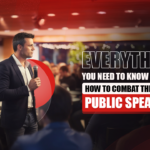


Comments are closed.